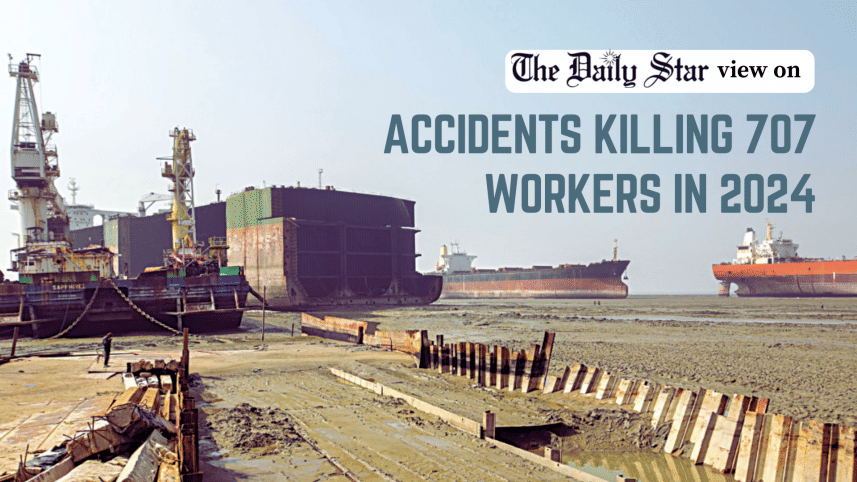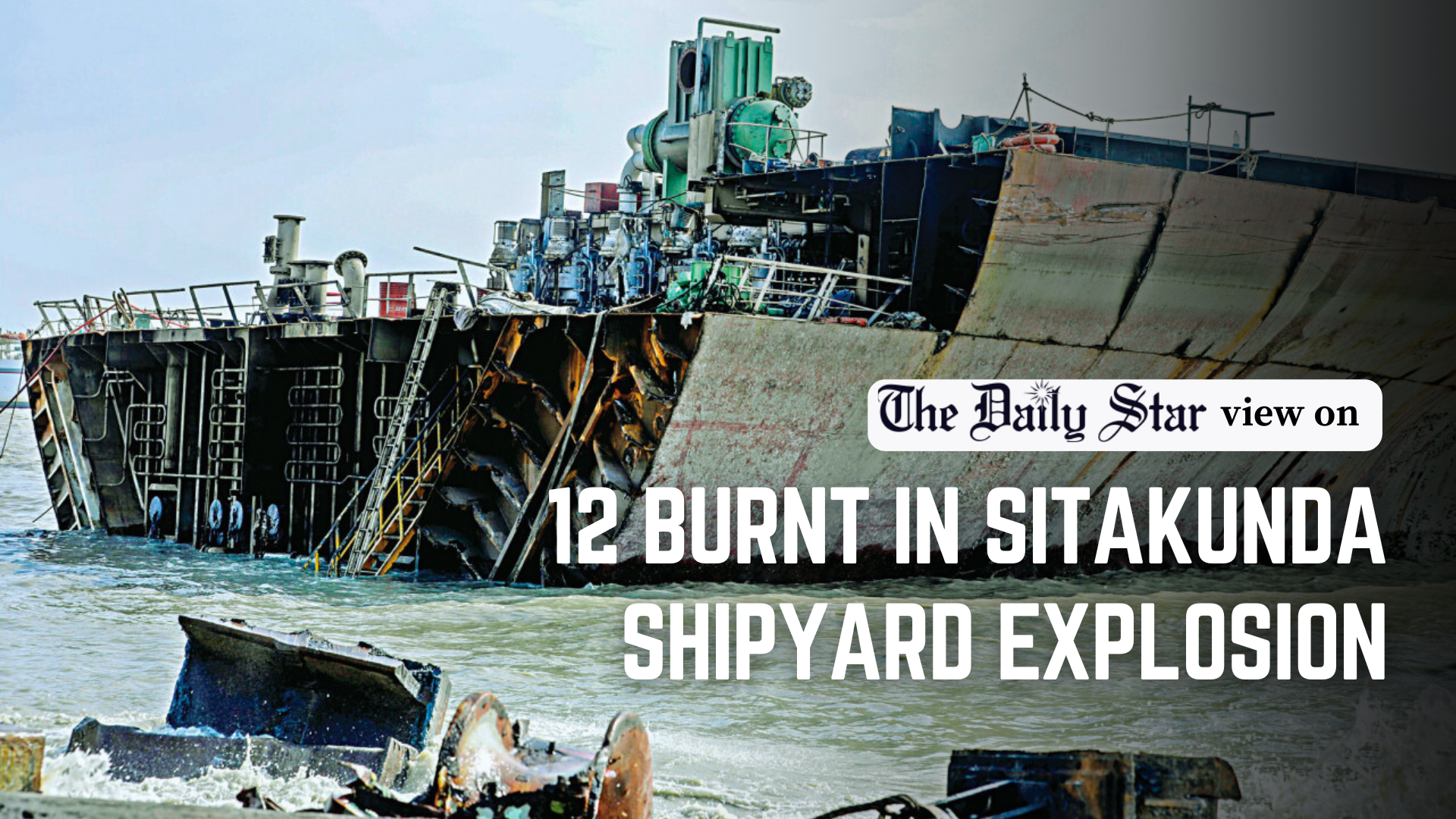Make workers’ safety a national priority

Not long ago, we wrote about why workers deserve a better deal in today's Bangladesh owing not only to their contribution in the July uprising but also to the fact that they have received the smallest share of whatever economic progress has been achieved over the decades, despite being its main drivers. Workers, particularly those in labour-intensive industries, are often deprived of their due benefits and rights, such as the right to workplace safety. This has been once again confirmed by a study by the Bangladesh Institute of Labour Studies (BILS) that says that at least 707 workers were killed in workplace accidents in 2024. Among them, transport workers accounted for the highest number of fatalities (273), followed by those in agriculture (102), construction (91), rickshaw pullers (43), migrant workers (38), and day labourers (32).
In comparison, 2023 had seen slightly higher fatalities, with 742 deaths. The BILS study has identified road accidents, roof collapses, electrocution, fires, cylinder explosions, and trawler or boat capsizing as the leading causes of workplace deaths. Many, including fishermen, also died or went missing during natural disasters. Unfortunately, this state of precarity has been persistent throughout the past decade that claimed over 8,000 lives in total—with 2019 and 2021 going down as the deadliest years. The relative decline in numbers in more recent years is not due to any positive shift in industrial policies and practices, however.
The question is, how much longer will workers have to wait for meaningful changes that ensure their safety? When, if ever, will the authorities address the systemic neglect that allow such tragedies to persist? One sector where this neglect has been most glaring is shipbreaking, which recorded nine deaths last year. This doesn't adequately portray the danger lurking in shipbreaking yards, as workers there routinely face hazardous conditions, inadequate safety measures, and exposure to toxic materials. A recent views-exchange event organised by the BILS in Chattogram's Sitakunda—where such yards have collectively witnessed 129 fatalities since 2015—brought out their appalling conditions.
Speakers, for example, highlighted the prevalence of unskilled, noncompliant contractors, who often obtain licenses through dubious means, as well as the lack of protections and proper wages for workers. They also expressed concerns about the occurrence of accidents in so-called "green shipyards", questioning how they receive certification without ensuring workers' rights and safety. They also raised alarm about the non-implementation of the minimum monthly wage of Tk 16,000 set in 2018. The persistence of such issues, which are by no means restricted to the shipbreaking industry, shows how workers are still being treated as expendable despite their critical role in driving our economy.
This needs to change. Our industries, both formal and informal, must undergo a radical transformation in how they approach workers' rights, including workplace safety and decent wages. It is imperative that the government not only ensures the implementation of existing safety regulations and wage structures but also introduces stronger mechanisms for worker representation, fair investigations, and transparency in industrial practices. Otherwise, this cycle of preventable workplace tragedies will continue to claim lives.
 For all latest news, follow The Daily Star's Google News channel.
For all latest news, follow The Daily Star's Google News channel. 



Comments